Poisoned lungs cause inflammation, cough, and many other symptoms. If it is not cleaned, the condition will worsen. These are the foods you should eat to reduce inflammation.
Food cleanses the lungs
Pneumonia is a very common illness that usually occurs in winter until late spring. Since the indoor and outdoor temperature variations during this period are relatively large and poor air quality, it is possible to cause the onset of various diseases, including pneumonia.
For people with pneumonia, you can improve your diet while taking the medicine, which may help reduce disease and heal sooner.
These foods are very good for cleansing and purifying the lungs:
Pear has good lung cleansing function, it contains many nutrients such as malic acid, citric acid, carotene, vitamins B1, B2, C, etc., so eating pears can improve the inflammation of the patient. have pneumonia.
However, since pears are a cold food for women with menstrual pneumonia, pears should not be eaten. Instead, you can cut the pears in water and cook them to eat them. For pneumonia patients with a weak spleen and stomach, it is also possible to use the cooked pear method.
Cabbage
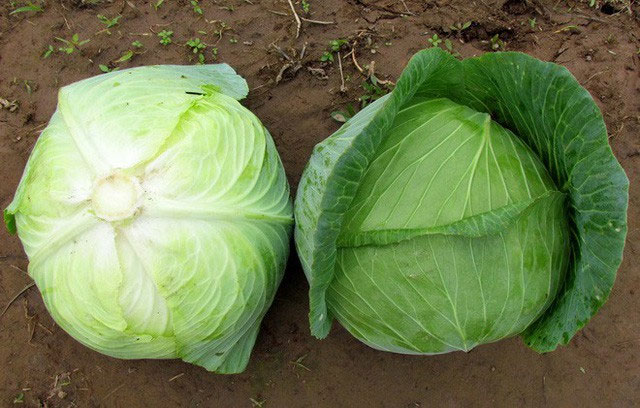
Cabbage is a good food to detoxify, eliminate phlegm and reduce coughs …
Cabbage is a good food for detoxifying, eliminating phlegm and relieving coughs, very suitable for patients with pneumonia.
Because the taste of cabbage is very sweet, patients with pneumonia can eat raw, of course, can also be cooked by boiling, sautéing, soup …
In addition, for patients with symptoms of constipation pneumonia, you can also eat a lot of cabbage as it also works to relieve constipation.
Nuts
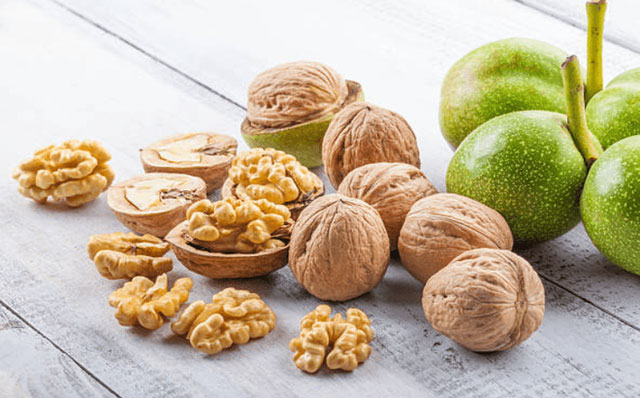
Walnuts are effective in treating pulmonary asthma and help soothe the lungs or relieve cough attacks.
A lot of people know that nuts are great for adding nutrients to the brain, but we might not know that they also work to cure asthma and help soothe the lungs or relieve a cough.
The seeds with dogs also work to regulate liver function, regulate blood circulation, and nourish the stomach. Therefore, for pneumonia patients, you can eat a little nuts to correct the situation, but the amount of nuts the patient eats should not be too much, to avoid the appearance of fat. obese because nuts have a fairly high nutritional content.
Honey
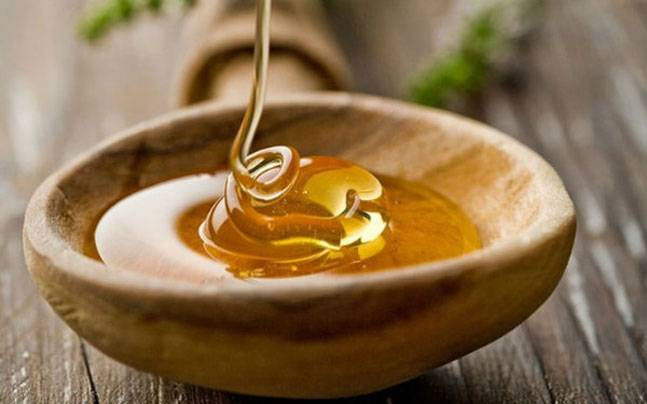
Patients with pneumonia can eat a little honey to relieve their symptoms.
Honey is also a good food for relieving lung disease, so patients with pneumonia can eat some honey to ease their symptoms.
Honey tastes sweet, so if you are concerned about the amount of sugar added during the consumption time, the patient can drink it by diluting the water with honey. This drink can also play a role in hydration and for a better hydration effect.
In short, for a patient with pneumonia, if you want to improve your symptoms through supplements, you need to eat a lot of foods to increase lung and liver function. Never eat foods that are easily irritating or cause heat, such as spicy foods.
Green tea

Green tea contains many antioxidants that can help reduce inflammation in the lungs. These compounds can even protect lung tissue from the harmful effects of smoke inhalation.
A study of more than 1,000 people in Korea found that those who drank at least 2 cups of green tea per day had better lung function than those who did not.
Apple
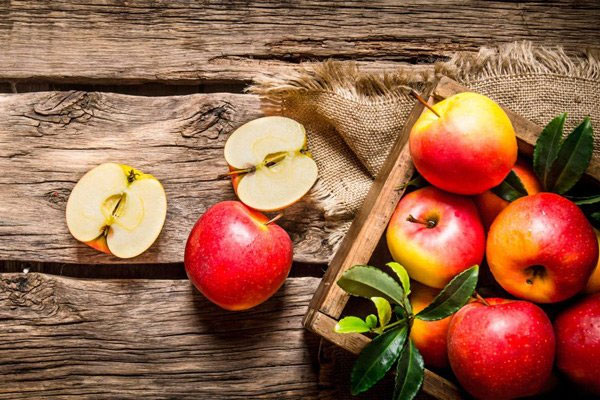
A nutritious, high-fiber, low-calorie apple should always be on a nutritionist’s list of foods to eat. The flavonoids and many vitamins found in apples, especially vitamin C, help us maintain a healthy immune system and respiratory system. When we have healthy breathing, we can fight and prevent lung disease.
Decades of research among 650 Britons and Europeans have shown that a diet high in tomatoes and fruits, especially apples, can speed the healing of lungs damaged by smoke.
Olive oil

The monounsaturated and polyunsaturated fats and phytonutrients found in olive oil are good for the skin, hair, heart, and especially the lungs. In fact, olive oil may help fight health risks associated with air pollution such as high blood pressure and weakened blood vessels – factors that can decrease your oxygen supply. , causing your heart to pump blood faster and have difficulty breathing.
“Olive oil is a healthy oil with antioxidant function,” said Professor Norman H. Edelman, senior scientific advisor to the American Lung Association. “It helps fight the main effects of pollutants, which are inflammation and the bad molecules that cause inflammation.”
Garlic
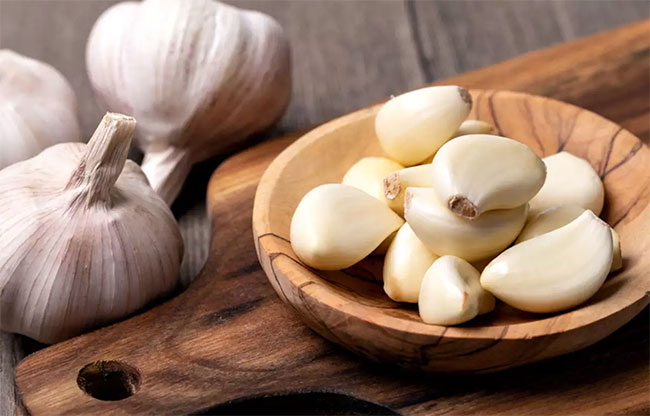
Garlic also has anti-inflammatory properties and reduces damage caused by free radicals. A study published in the journal Cancer Epidemiology, Biomarkers & Prevention found that people who ate raw garlic were less likely to develop lung cancer than those who did not consume raw garlic. Additionally, smokers who consume raw garlic also have a 40% lower risk of lung cancer than smokers who do not eat raw garlic. However, this is not an alternative method of quitting smoking. If you smoke, the best thing to do is to quit.
Bay

Berries like cherries and blueberries are the two most effective types for keeping your lungs healthy. Vitamin C, Vitamin A, and various phytonutrients in blueberries work as powerful antioxidants that can help protect cells from free radical damage associated with disease.
Research shows that antioxidants can inhibit tumor growth, reduce inflammation in the body in the esophagus, lungs, mouth, pharynx, endometrium, pancreas, prostate, and cancer. colon.
Sugar cane
Sugar cane contains many natural sweeteners, so it can help keep your throat moist.
According to Sohu, when it comes to sugarcane, people often think of its sweetness, but in fact, sugarcane also has other miraculous effects as are cough suppressants, phlegm reduction, very helpful for asthma. Sugarcane contains many natural sweeteners, so it can help keep your throat moist. In addition, sugar cane is also effective in reducing the symptoms of dry mouth and dry throat.
Due to its alkaline content, sugar cane can prevent cancer, especially colon cancer, lung cancer. It is also a food for the lungs, helping to clean the lungs well.
Figs

Figs are not only food, but also a valuable medicine for the lungs.
Figs are not only food, but also a valuable medicine for the lungs. According to modern medicine, figs are rich in malic acid and oxalic acid, these ingredients have three main benefits for human body, one is that they can promote food digestion by stomach and intestines. The second is to play an anti-inflammatory and inflammatory role. The third is beneficial for the respiratory system, it may play a role in maintaining warmth and hydration in the throat and lungs.
Therefore, figs are also referred to as lung “aspirators”, if you use them correctly, not only to aid digestion, but also to nourish the lungs.
The secret dish of the pig
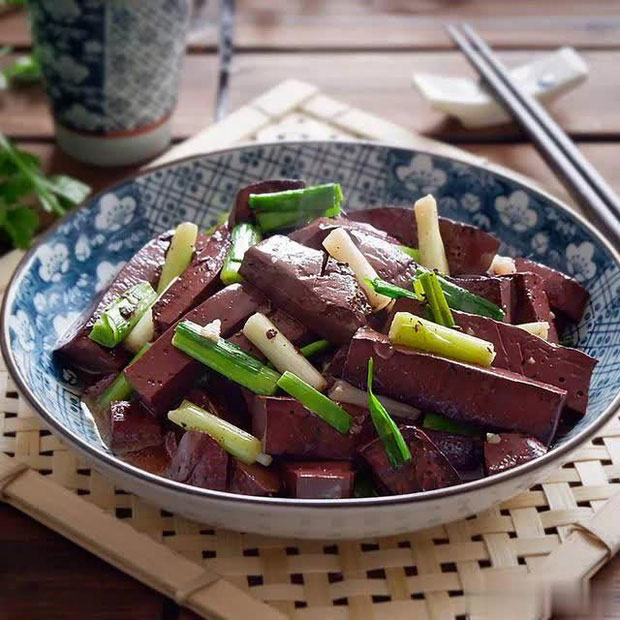
Pork secretion is a “filter” that helps the body quickly release harmful residues.
When it comes to the weather, many people will immediately think of foods rich in iron and protein. However, this food is also effective against dirt and residues that accumulate in internal organs, typically the intestines, lungs …
Modern medicine says that the amount of protein in the pork secretion after the acidic fluid in the stomach breaks down will produce a substance that can sterilize the intestines. This substance can destroy the biochemical reactions formed by the metal particles, and then eliminate the harmful substances by excretion.
It can be said that the secret of pork is the “filter” which helps the body to quickly release harmful residues, not only good for the lungs but also good for many other organs. However, should not eat raw blood, but steamed before eating. In particular, you should buy blood from reputable stores, not to eat the blood of pigs that die of illness or show signs of rancidity for a long time.
cauliflower
Cauliflower is a vegetable containing vitamin C, folate, carotenoids and phytochemicals … which are effective against harmful factors in the lungs. In particular, this cruciferous vegetable also contains an active compound called L-sulforaphane, which helps cells switch to anti-inflammatory genes to prevent respiratory disease.
Ginger
Ginger is one of the most widely used home remedies for coughs and colds in the world, according to Indiatimes.
Ginger is known for its anti-inflammatory properties, helping to flush toxins from the respiratory tract. It contains many vitamins and minerals, including potassium, magnesium, beta-carotene and zinc. Certain ginger extracts are also known to kill lung cancer cells. The best way to boost immunity and fight the seasonal flu is to drink ginger tea every day at home.


